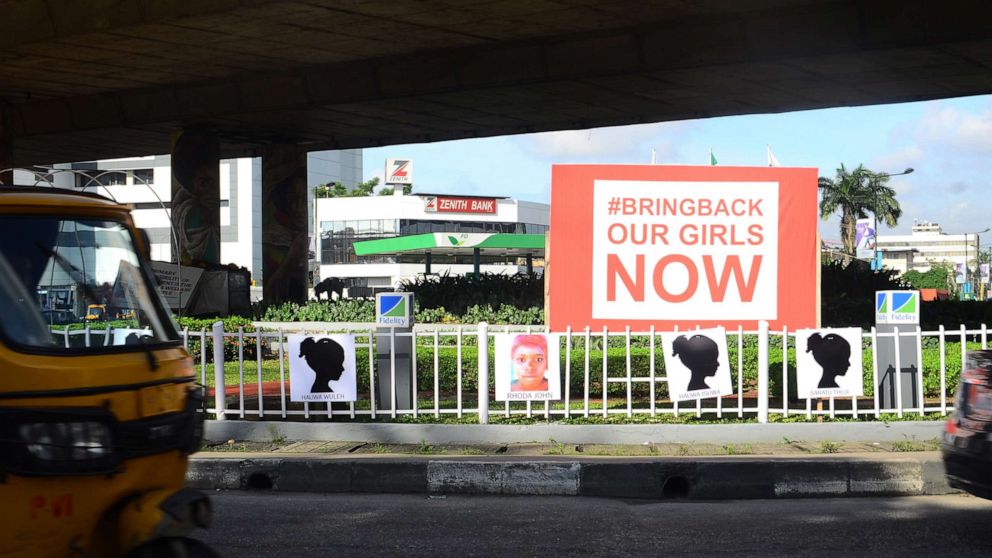More missing girls are said to be returning home.
LONDON and MAIDUGURI – Nearly seven years after Boko Haram militants snatched them from their dormitories in the northeastern city of Chibok, more missing girls are returning home.
Emmanuel Ogebe, a Nigerian human rights lawyer who works in the United States and has previously worked with some of the freed girls and their families, said a father told him that his daughter and others had escaped his abductors.
“Ali Maiyanga’s two daughters were among the few Muslim students taken with most of the Chibok Christian girls. Information currently available to us indicates that there are other fugitives from the army that parents are eagerly waiting to identify,” Ogebe said in a statement to ABC News on Thursday. “We spoke and confirmed by Mr. Ali Maiyanga moments ago that he did speak to his daughter today, who informed him that she and other people were rescued. Her sister, who ran away four years ago and is on vacation, was very happy with the news of her brother’s escape. “
Lawal Zannah, secretary of the Chibok Parents’ Association, whose daughter was among the abductees, also confirmed the news.
“We heard that some of our girls escaped from the forest, but we still don’t have the details on their number,” Zannah told reporters on Thursday night.
Another father, Malam Madu Mutta, said that the Chibok community eagerly awaits the girls’ arrival.
“We have been informed that they are currently with security officers. We do not yet know the numbers, but we are happy that some of them escaped,” Mutta told reporters on Friday. “Many other parents and relatives are coming from Chibok with the hope of meeting their daughters. Once again, the hope is that we can have some of them back.”
Nigerian authorities have yet to issue a statement confirming the matter. ABC News contacted the Nigerian Army and also local government officials.
In April 2014, members of the jihadist group Boko Haram ambushed a girls’ boarding school in Chibok in the middle of the night and kidnapped 276 students before disappearing into the forest. Some of the girls managed to escape on their own, while others were later rescued or released after negotiations. But the fate of many remains unknown.
Boko Haram, whose name in the local Hausa language roughly translates as “Western education is prohibited”, has fought a brutal insurgency in northeastern Nigeria since 2009. The group seeks to establish an Islamic state there, although it has spread its terror across the region. mountainous regions over the years with Niger, Chad and Cameroon, all of which surround the Lake Chad basin, where millions have been affected by the violence, according to the United Nations.
Boko Haram swore allegiance to ISIS in 2015. Its leader, Abubakar Shekau, and several commanders split from the group in 2016 due to ideological differences and formed their own faction.
Boko Haram’s uprising was fueled in large part through the group’s systematic campaign to abduct children and force thousands of girls and boys into its ranks, according to a 2017 report by the United Nations Children’s Fund (UNICEF ). The group has targeted Nigerian schools for several years, with Chibok’s attack being the most well-known and widely publicized.
The Chibok kidnapping shocked the world and led to the launch of a social media campaign in which millions of people around the world, including high-profile political figures and celebrities, called for the rescue of the girls by tweeting the hashtag #BringBackOurGirls. However, there was little political action.
